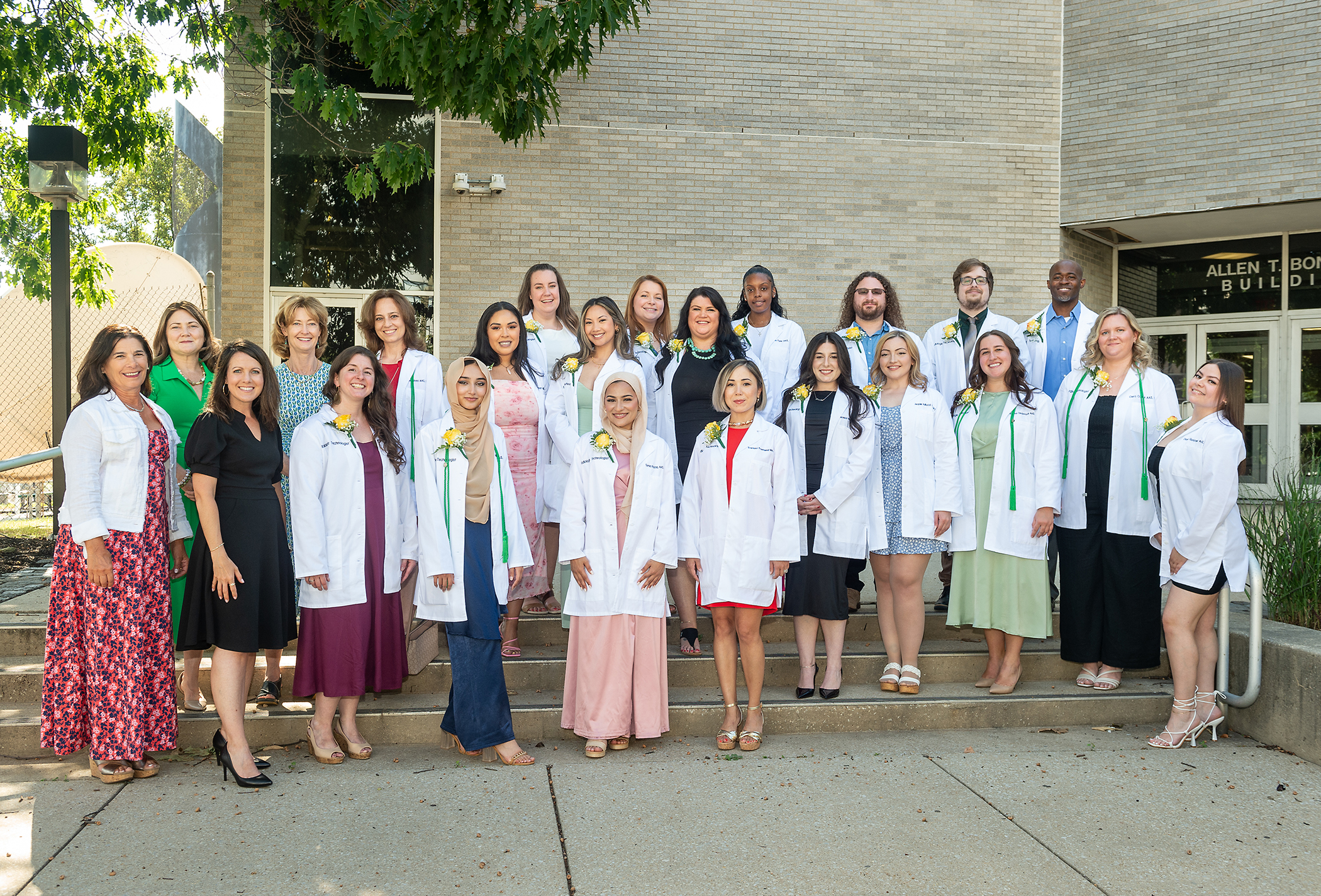Diagnostic Medical Imaging Students’ Extraordinary Achievement: A 100 Percent Radiography Exam Pass Rate Extending 20 Years
 Students in the College’s Diagnostic Medical Imaging (DMI) program are ready to start careers as radiologic technologists after graduating and passing the American Registry of Radiologic Technologists (ARRT) certification examination in Radiography, which is necessary to work in the field. For the past 20 years, students have achieved a 100 percent pass rate on the exam, on their first try, within six months of graduation.
Students in the College’s Diagnostic Medical Imaging (DMI) program are ready to start careers as radiologic technologists after graduating and passing the American Registry of Radiologic Technologists (ARRT) certification examination in Radiography, which is necessary to work in the field. For the past 20 years, students have achieved a 100 percent pass rate on the exam, on their first try, within six months of graduation.
Accredited by the Joint Review Committee on Education in Radiologic Technology (JRCERT), the DMI program prepares students to effectively and safely perform radiographic and fluoroscopic procedures. A vital part of a health care team, technologists are in demand in Philadelphia and many parts of the country. Students are able to work as technologists across the United States with their national certification.
The JRCERT Standards for an Accredited Educational Program in Radiography require that programs maintain a five-year average credentialing examination pass rate of not less than 75 percent on the first attempt within six months of graduation. There are more than 600 JRCERT accredited radiography programs in the United States, 27 of which are located in Pennsylvania.
Published program effectiveness data shows that maintaining a 100 percent pass rate is no easy feat. In fact, CCP’s DMI program is one of only three programs in Pennsylvania with a current five-year credentialing exam pass rate of 100 percent. Not only has the DMI program maintained this for 20 years, but the program’s ARRT national comparison reports also show that its mean scores for all exam content categories consistently exceed the national average.
“Demand is growing. This year, many students had secured jobs three months before graduation,” said Rebecca Peterson, DMI program director and associate professor.
Spaces for students are limited in the select program, and entry into the program can be competitive.
“Our program can accept 24 students a year, and we can have 100 applicants,” said Peterson.
DMI graduates can transfer to pursue their bachelor’s degree, and there is room for growth in the field. This includes post-primary certification and registration pathways in modalities such as computed tomography, mammography and magnetic resonance imaging (MRI).
The excellent training provided by faculty, staff, and program partners prepares students with a combination of classroom, laboratory, and supervised clinical education experiences. The program’s small class sizes means individualized attention to student learning.
“I work with a team of registered technologists who are dedicated to teaching and learning. They assure that our students meet the academic and clinical requirements for ARRT certification and registration. We strive for continual excellence to foster student success, and continued professional development is at the forefront,” said Peterson.
Categories: College News